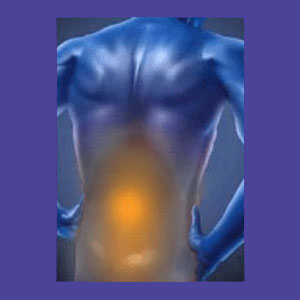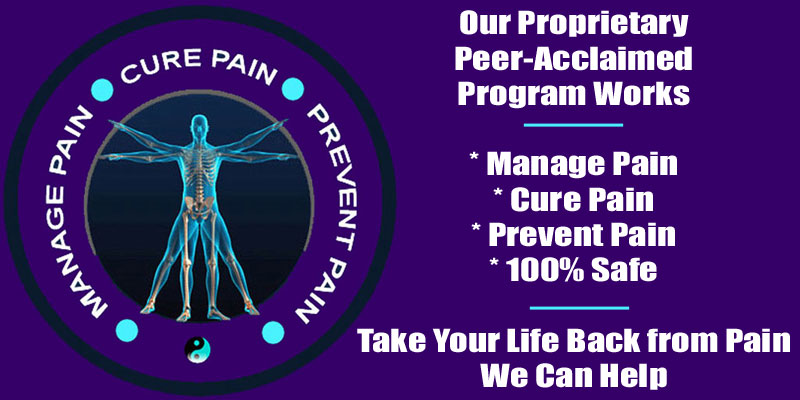
Is a tense lower back becoming a chronic problem for you? Tension is a common symptoms of many back pain issues, but often is a pre-cursor and even contributor to extreme bouts of acute lower back pain. Tension is always an indicator that something is not right, in the body and possibly in the mind, as well.
What is tension? Why does it occur and why is it such a common problem in the postural muscles of the lower back? Can you actually end tension and prevent pain in the future? We will explore these questions and others during the course of this dialog.
This article covers the topic of tension in the lower back and explains its origins, symptoms and consequences. We will discuss the importance of recognizing tension as part of complete mindbody health and detail the warning signs of a tense lower back before it can debilitate you with pain.
Tense Lower Back Expressions
What is lower back tension? Tension describes feelings of general stiffness, tightness and discomfort that does not qualify as pain, but definitely qualifies as an abnormal state in the muscles of the lower back. The person might experience more tension when mobilizing the back or might demonstrate the exact opposite expression of more tightness when staying in one position for an extended time frame. In virtually all cases, the tension is actually unrelated to either movement or a lack of movement, but tends to attract symptomatic triggers, like most other mindbody symptoms.
Tension might feel like tiredness in some cases. In other cases, tension may resemble a heaviness or even numbness. This numbness is rarely objective, but instead purely subjective, since the person can indeed feel sensory stimuli in the affected area.
Tension might exist as a precursor to significant pain and may occur during painful lower back pain flare-ups or even after the pain has largely resolved. Tension is often one of the most chronic of all lumbar symptoms and this type of ongoing tense feeling is virtually always the direct result of a mindbody syndrome.
Lower Back Tension Origins
Some patients might have focal or general areas of tension in their lower back due to purely structural concerns. It is important to know the difference between muscular tension and stiffness caused by spinal pathology.
Some cases of recurring or chronic back muscle tension can be caused by structural issues, such as muscular imbalances, innervation concerns or even anatomically-motivated ischemia caused by circulatory problems. We see this latter example in the case of thoracic outlet syndrome in the upper back and shoulder occasionally, but it is certainly far less frequently observed in the lower back.
The vast majority of lower back tension occurs due to mindbody symptomology. When the person is unsettled psychoemotionally, their body will usually immediately produce tension as a consequential response. The mind and body are unified and there is no way that the mind will suffer without the effects spilling over into the anatomical realm. This is why we have such an epidemic of psychogenic and psychosomatic pain syndromes in the modern world. These conditions are actually very normal. The problem is that modern healthcare science rarely recognizes them for what they truly are and virtually never treats them appropriately.
A Tense Lower Back Leads to Pain
Do not ignore tension in the lower back. Doing so will likely lead to worse symptoms soon to come… Tension is actually a very useful tool for people who are enlightened to the concept of mindbody medicine, since it can allow the to instantly recognize emotional turmoil before these sensitive psychological issues can cause pain in the body. Tension is frequently one of the very first bodily expressions of emotional sensitivity, so understanding this fact can lead to proactive prevention of pain indefinitely throughout life.
Ignoring tension can have painful consequences if mindbody-driven ischemia is the underlying source, since symptoms will likely be escalated soon to reach acute presentations. This is exactly what happens in most cases of sudden presentation lower back pain observed in emergency room patients. There is no actual structural source, but instead a ongoing and underlying psychoemotional causation that reaches critical mass and spills over anatomically.
The way to manage this chronic tension is to get to the bottom of its root cause. This source is most often found in the mind, which is why knowledge therapy delivers better therapeutic outcomes than all the traditional and complementary medical treatments combined. Rare cases of chronic lumbar tension might have a structural basis, but the vast majority do not. Understanding and applying this knowledge is what separates people who recover from people who never will… It is truly as simple as that.
Lower Back Pain > Lower Back Pain Symptoms > Tense Lower Back





